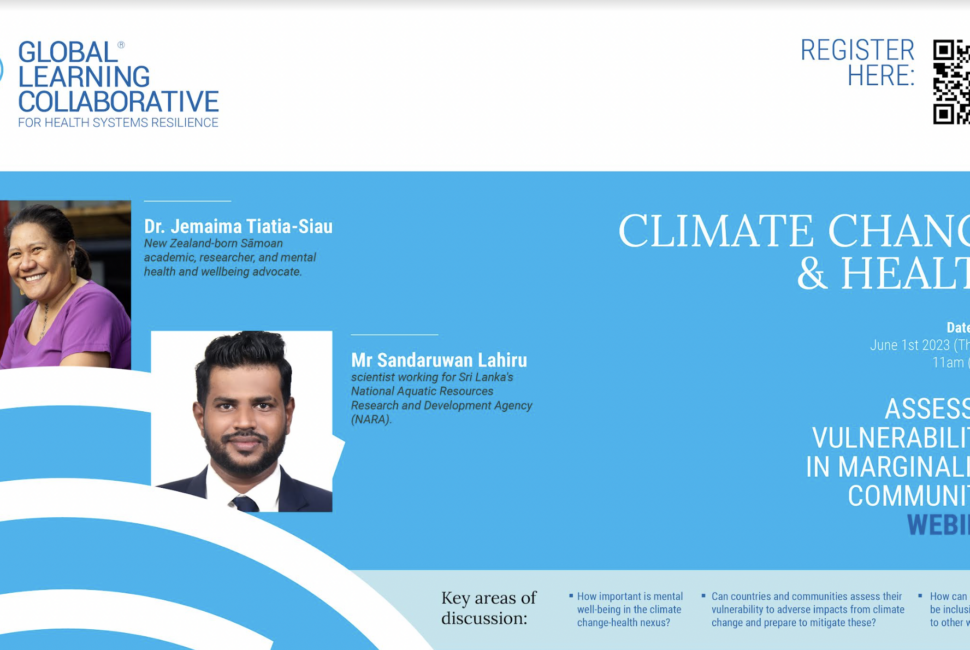GLC4HSR hosts webinar on climate change and health focusing on Pacific region and Sri Lanka

The GLC4HSR recently hosted a webinar on climate change and health focusing on marginalized communities in the Pacific region and Sri Lanka.
The session was moderated by Iman Hameed, ACCESS Health Consultant and Technical Coordinator for the GLC4HSR, and the panelists were Dr. Jemaima Tiatia, Pro Vice Chancellor, Pacific, University of Auckland and a Samoan academic, researcher, and mental health and wellbeing advocate and Mr. Sandaruwan Lahiru, National Aquatic Resources Research and Development Agency, Sri Lanka.
Climate change will force over 100 million more people into extreme poverty and an estimated 75 million people in the Asia-Pacific region to migrate by 2025. This will exacerbate the effects on mental and physical health in marginalized populations disproportionately. The webinar explored how these two communities are or can be more resilient to climate change impacts on health and what we can learn from them in our own resilience planning.
Some key takeaways from the session were:
Indigenous ways of knowing and doing are important. We need governments to help re-establish traditional ways of knowing, as the more that’s lost, the harder it is to come back.
The people are connected to their land, physically, mentally, and spiritually. They are deeply connected to their environment; thus, mitigation and adaptation planning must be done from their perspectives.
Mental health threatened by climate change. Socioeconomic vulnerabilities, as well as physical and social ones, can put stress on mental well-being. There is much need to understand how to design and provide community-appropriate mental health services.
Although these communities are vulnerable, they are incredibly resilient. Facing climate change and unpredictability far more frequently, we have much to learn from them. We need more of their knowledge on resilience to be studied and represented on both global and local platforms.
Inclusive health systems need to be open to unlearning our ways of seeing and understanding, which is often a biomedical view of the world.
The webinar recording is available here: https://youtu.be/2m_tBHnRLM4

